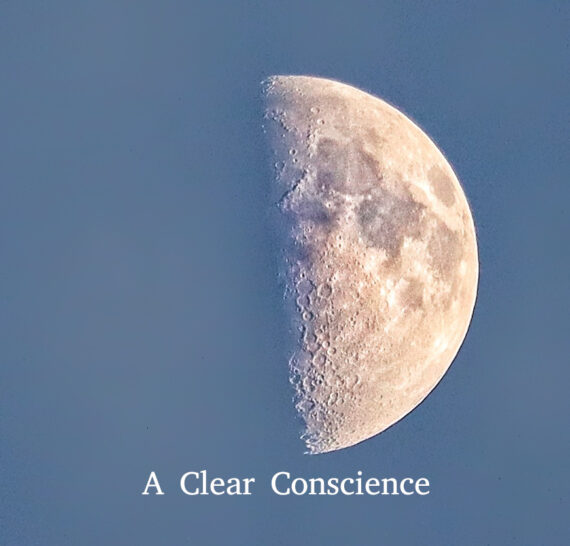Have you ever taken the time to really reflect on what the Bible says in 2 Corinthians 5:10? “We must all appear before the judgment seat of Christ, so that each of us may receive what is due us for the things done while in the body, whether good or bad.”
Imagine standing before God and being able to say: “I am innocent of the blood of all men.” These are Paul’s words to the Ephesian elders in Acts 20, and part of his farewell speech. In Acts 20:26 Paul says, “Therefore, I declare to you today that I am innocent of the blood of any of you.” Paul had served them faithfully, preached the full counsel of God, and now was about to depart, possibly never to see them again. Paul’s conscience was clear—not because he was perfect, but because he was faithful. A question to every servant of God, especially those who have the privilege to teach and preach the gospel, is, if today were your last day, could you say, like Paul, that your conscience is clear before God and others?
The Seriousness of Paul’s Statement in Acts 20:26






The phrase “innocent of the blood” recalls Ezekiel 3:17–19 and 33:7–9, where God made the prophet a “watchman.” In Ezekiel 3:16–19 we read of Ezekiel’s task as watchman.
“16 At the end of seven days [v. 15 Ezekiel had been with the exiles who lived at Tel Aviv for 7 days] the word of the Lord came to me: 17 “Son of man, I have made you a watchman for the people of Israel; so, hear the word I speak and give them warning from me. 18 When I say to a wicked person, ‘You will surely die,’ and you do not warn them or speak out to dissuade them from their evil ways in order to save their life, that wicked person will die for their sin, and I will hold you accountable for their blood. 19 But if you do warn the wicked person and they do not turn from their wickedness or from their evil ways, they will die for their sin; but you will have saved yourself”.
The message is so important that God repeats it in Ezekiel 33:7-9. So, you see… If the watchman failed to warn people of danger, their blood would be required at his hand. The watchman would be responsible. Thus, in Acts 20:26, Paul is saying to the Ephesian Elders: “I have fulfilled my duty. I have warned, taught, and preached. I am free from guilt.”
Paul’s Faithfulness in Ministry
He had not shunned declaring the whole counsel of God (v. 27). He served amidst trials with humility and tears (v. 19). He preached publicly and from house to house (v. 20). He proclaimed repentance toward God and faith in Jesus (v. 21).
The Meaning for Us Today
Fellow Christians, while we are not apostles, we are all called to be faithful witnesses. Parents have a duty to warn and guide their children. Proverbs 22:6 says: “Start children off on the way they should go, and even when they are old, they will not turn from it.” This highlights the importance of early instruction in guiding children’s lives. Believers have a duty to share Christ with others in their circle. In Matthew 5:16 Jesus says, “Let your light shine before others, that they may see your good deeds and glorify your Father in heaven.” And Mathew 28:19-20 says, “Go and make disciples of all nations, baptizing them in the name of the Father and of the Son and of the Holy Spirit, 20 and teaching them to obey everything I have commanded you. And surely, I am with you always, to the very end of the age.” The Lord’s church has a duty to preach the truth—not only what is popular, but the full counsel of God.
A clear conscience comes from faithfulness, not perfection. Paul wasn’t sinless, but he was faithful. We too can stand before God with a clear conscience when we live faithfully. This underlines the urgency of sharing the gospel. Silence can make us guilty of neglect. People’s eternity is at stake; therefore, we cannot remain quiet. It recalls our responsibility as watchmen. In our homes, workplaces, and communities, we are watchmen. While we cannot save everyone, we must warn everyone. Faithfulness removes guilt from us, even if others reject the message.
Paul could depart in peace because he had done his duty.The question remains: Can you say the same? One day, everyone of us will stand before the judgment seat of God. Remember 2 Corinthians 5:10, “We must all appear before the judgment seat of Christ, so that each of us may receive what is due us for the things done while in the body, whether good or bad.”
On that day, will your conscience be clear? Again, to those of us who have the privilege to teach and preach the gospel; will we be able to say to God that we preached the truth? Will you be able to say, “I am innocent of the blood of all men.”?
Toronto, ON

